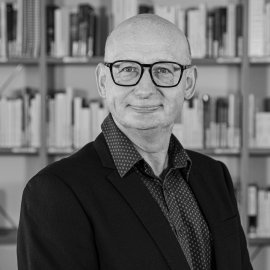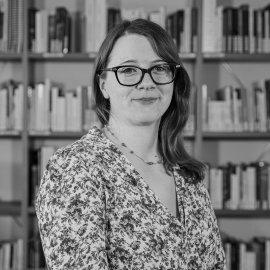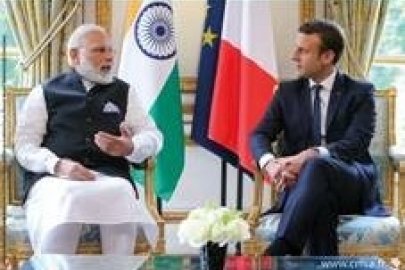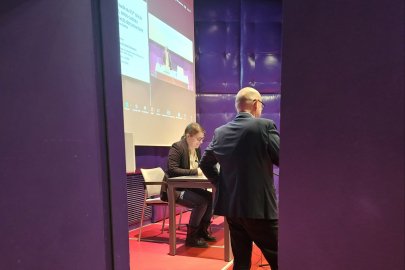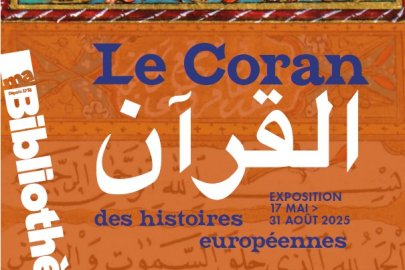CO-HABITING THE MEDITERRANEAN WORLD:
Political, Economic, and Cultural Diplomacy Between Christians and Muslims (15th – 19th centuries)
On March 18 and 19, 2025, the Institut d'études avancées in Nantes will host a research workshop led by former fellows Florence Ninitte and Ferenc Toth.
The goal of this workshop is to bring together specialists from various fields – historians, literary scholars, geographers, and archaeologists – to analyze and debate the complexity of diplomatic relations between Christian and Muslim powers during a period marked by profound upheavals, from the rise of the Ottoman Empire to the end of the 19th century.
Organized in collaboration with international experts, this event will focus particularly on the evolution of conflicts, alliances, commercial and cultural exchanges, as well as the diplomatic and economic networks that, despite geopolitical tensions, facilitated the creation of spaces for interaction and cohabitation in the Mediterranean world.
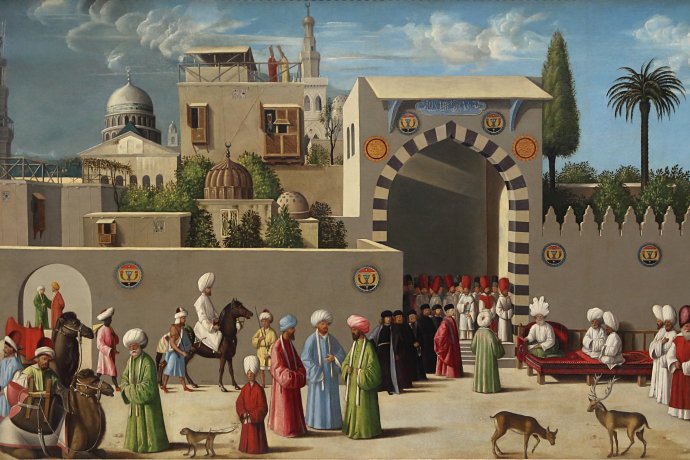
Tuesday, March 18 (open to the public upon registration)
Wednesday, March 19 (open to the public upon registration)
Centre des Archives Diplomatiques in Nantes (Tuesday, March 18)
Institut d'études avancées in Nantes, Simone Weil Auditorium (Wednesday, March 19)
The workshop will be held in French and English without interpretation.
Registration: https://forms.gle/brdSjwHHL8eHbW9d8
An Interdisciplinary Look at Diplomatic Issues
Centered on exchange and interdisciplinarity, the workshop offers a reflection around two main themes:
- Relations between Christian and Muslim Powers in the Face of International Rivalries: Analysis of diplomatic actors (ambassadors, consuls, agents, etc.) and their roles in negotiations, strategic cooperations (capitulations, peace treaties), and the influence exerted by ethnic and religious minorities in the context of 15th and 16th-century conflicts.
- The Impact of Diplomatic Exchanges: Study of the movement of people, objects, knowledge, technologies, and ideas, as well as cultural and scientific transfers facilitated by diplomatic networks.
The speakers will examine how these dynamics contributed to the emergence of new disciplines while also playing a role in the modernization of diplomatic institutions such as embassies, consulates, and trading posts.
The workshop will be organized around three thematic working sessions, accompanied by lectures that will highlight concrete case studies and new perspectives on Christian-Muslim relations in the modern era.
A key moment of the workshop will be the visit to the Centre for Diplomatic Archives of Nantes, allowing researchers to access valuable historical sources in order to explore large-scale collective projects, such as preparing an application for a European grant, such as an ERC grant.
Registration Form https://forms.gle/brdSjwHHL8eHbW9d8
Program for Tuesday, March 18 at the Centre for Diplomatic Archives
14:00 – Visit to the archives and presentation of documents related to the topic
14:00-14:30 – Agnès Chablat-Beylot (France), Head of the Centre for Diplomatic Archives of Nantes – Diplomatic and consular sources on the Mediterranean world at CADN.
14:30-15:15 – Éric Lechevallier (France), Head of Public Services, CADN – Visit of the Centre.
15:15-15:45 – Bérangère Fourquaux (France), Head of the Department of Processing and Conservation of Old and Modern Collections (CADN) – A Bridge Between Two Shores, Revealing Great Hopes: The Estate Case of Claude Simonneau Coronat (Tripoli of Barbary, 1752).
Break
16:00-16:30 – John Tolan (France), University of Nantes – The Qur'an in Europe Between the 16th and 19th Centuries: Object of Refutation, Tool of Evangelization, or Instrument of Colonization?
16:30-17:00 – Ferenc Tóth (Hungary), HUN-REN Centre for Humanities Research (Budapest) – Co-habiting the Mediterranean during the Enlightenment. Testimonies from Hungarian Sources in the Old Archives of the French Embassy in Constantinople.
Program for Wednesday, March 19 at the Institute
10:00 AM – First Session
10:15-10:30 AM - Welcome address and introduction by Pierre-Etienne Kenfack, Florence Ninitte, and Ferenc Tóth.
10:30-11:00 AM – Florence Ninitte (Belgium-Italy), University of Verona – Conceptualizing the Crusade in the 15th Century: The Manuscript as a Diplomatic Gift and Documentary Resource.
11:00-11:30 AM – Géza Szász (Hungary), University of Szeged – The Traveler as an Actor and Beneficiary of Diplomatic Relations.
Discussion
2:00 PM – Second Session
2:00-2:30 PM – Pascal Arnoux (France), University of Paris I – Pierre Gravier d’Ortières and His Project to Conquer Constantinople (1685).
2:30-3:00 PM – Mónika F. Molnár (Hungary), HUN-REN Research Center for Humanities (Budapest) – An Italian Polymath Between East and West: Luigi Ferdinando Marsigli, Soldier, Diplomat, and Scientist.
3:00-3:30 PM – Yasar Gün (France), University of Nantes – "A Bridge Between Two Worlds": Mouradgea d’Ohsson (1740-1807) and the Use of Religion to Mediate Between the Ottoman Porte and Christian Europe in the Age of Enlightenment.
Discussion and break
4:00 PM – Round Table: Workshops and Laboratories of Diplomatic Relations in the Mediterranean
With the participation of:
- László J. Nagy (Hungary), University of Szeged
- Gábor Fodor (Hungary), HUN-REN Research Center for Humanities (Budapest)
- Philip Mansel (United Kingdom), Society for Court Studies (London)
- Éric Lechevallier (France), PhD Candidate in Contemporary History (Center for Research in International and Atlantic History) and Head of the Public Services Department, Diplomatic Archives Center of Nantes
